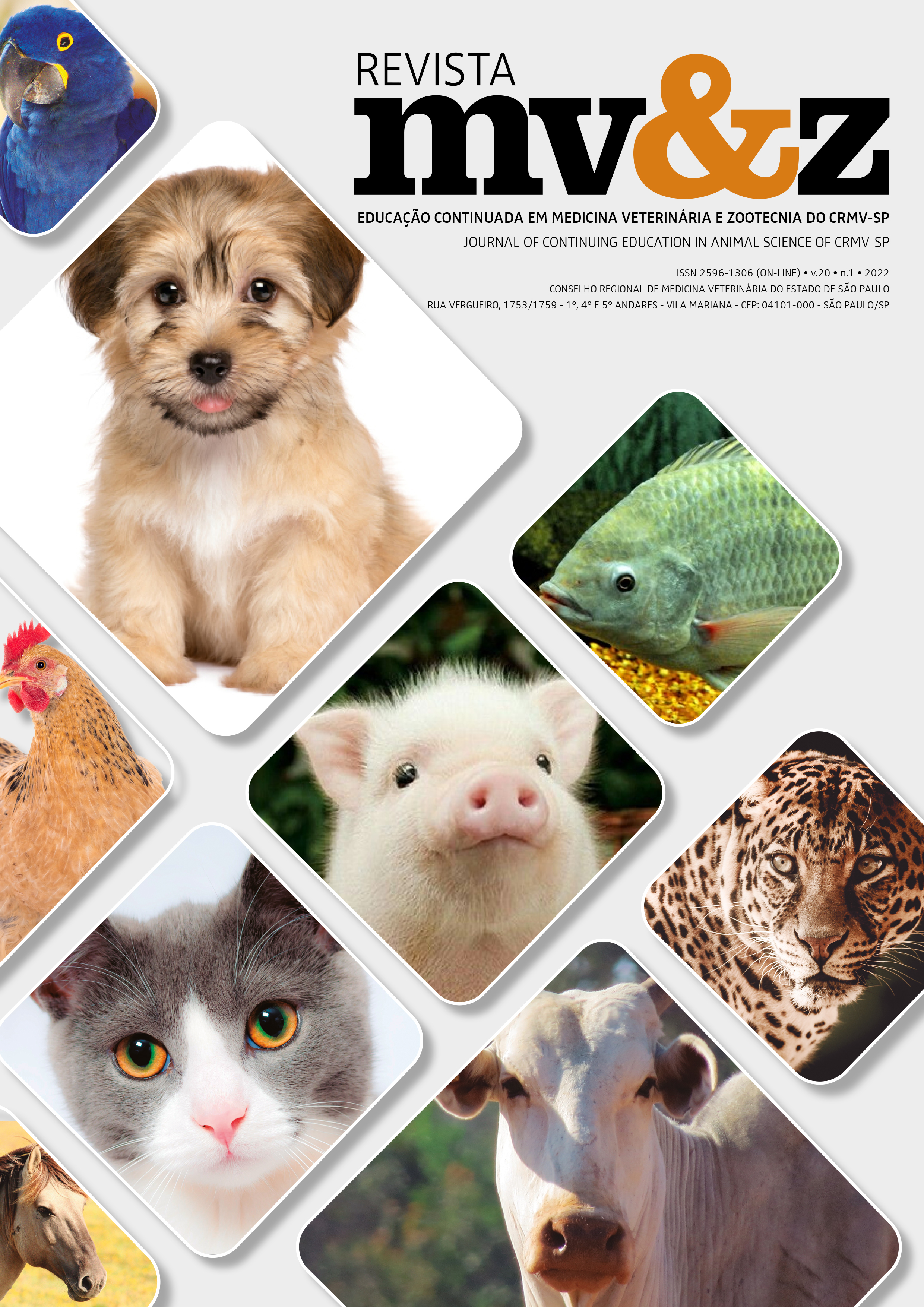Intoxicação em gatos atendidos em um hospital veterinário universitário da cidade de São Paulo: análise retrospectiva de 2010 a 2021
Conteúdo do artigo principal
Resumo
O aumento da população pet no Brasil causou maior proximidade da convivência de gatos com o ser humano e a falta de conhecimento do proprietário quanto às particulares felinas pode favorecer a ocorrência de toxicoses. Assim, o presente estudo apresenta as principais causas de intoxicações em gatos registrados no Hospital Veterinário (Hovet) da Faculdade de Medicina Veterinária e Zootecnia da Universidade de São Paulo (FMVZ-USP), no período de janeiro de 2010 a dezembro de 2021. Os resultados mostraram que a frequência de ocorrência anual de casos de intoxicações em gatos variou de 0,71% (5/704) a 2,68% (9/336), e os principais agentes responsáveis por intoxicações foram os praguicidas anticolinesterásicos, como carbamatos e organofosforados (50% - 48/96), e os medicamentos, em particular, os anti-inflamatórios não esteroidais (31,25% - 30/96). Houve casos em que não foi identificada a substância envolvida (7,29% - 7/96), o que dificulta a abordagem terapêutica. Em casos de urgência, devem ser inicialmente instituídas as medidas destinadas à manutenção das funções vitais do animal, e, posteriormente, de suporte ao animal. Nestes casos, é importante a realização do diagnóstico diferencial das possíveis causas de intoxicação de acordo com os sinais e histórico clínico, bem como a colheita de amostras para análise toxicológica.
Detalhes do artigo
Seção
1. Autores mantém os direitos autorais e concedem à revista o direito de primeira publicação, com o trabalho licenciado sob a Creative Commons Atribuição-NãoComercial-SemDerivações 4.0 Internacional
2. Autores têm autorização para assumir contratos adicionais separadamente, para distribuição não-exclusica da versão do trabalho publicada nesta revista (ex.: publicar em repositório institucional ou como capítulo de livro), com reconhecimento de autoria e publicação inicial nesta revista.
3. Autores têm permissão e são estimulados a publicar e distribuir seu trabalho online (ex.: em repositórios instituicionais ou na sua página pessoal) a qualquer ponto antes ou durante o processo editorial, já que isso pode gerar alterações produtivas, bem como aumentar o impacto e a citação do trabalho publicado (Veja O Efeito do Acesso Livre);
